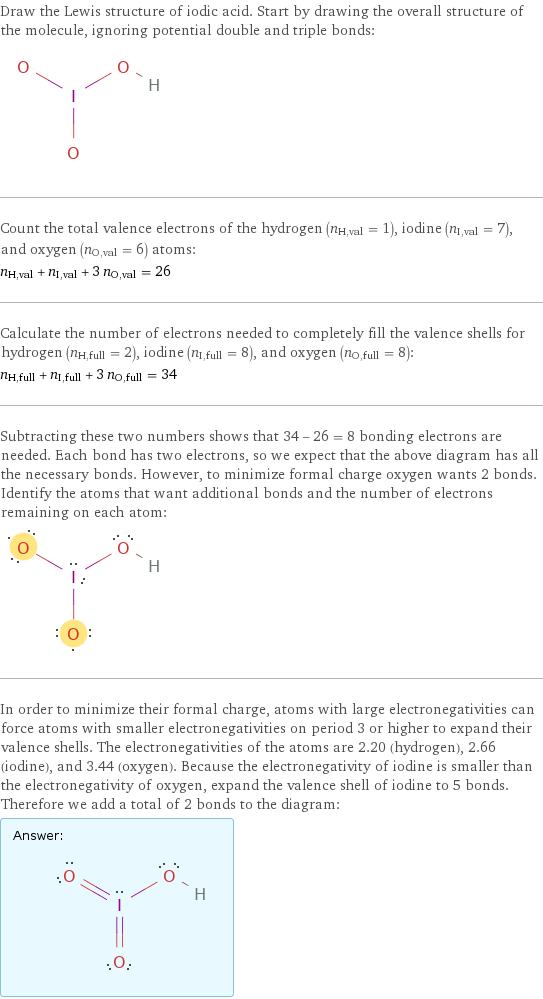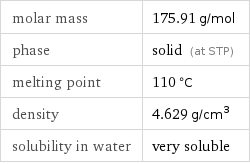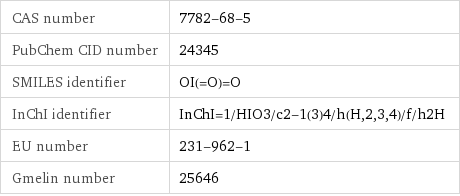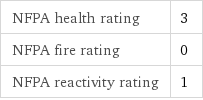Input interpretation

iodic acid
Chemical names and formulas

formula | HIO_3 name | iodic acid alternate names | hydrogen iodate mass fractions | H (hydrogen) 0.573% | I (iodine) 72.1% | O (oxygen) 27.3%
Lewis structure

Draw the Lewis structure of iodic acid. Start by drawing the overall structure of the molecule, ignoring potential double and triple bonds: Count the total valence electrons of the hydrogen (n_H, val = 1), iodine (n_I, val = 7), and oxygen (n_O, val = 6) atoms: n_H, val + n_I, val + 3 n_O, val = 26 Calculate the number of electrons needed to completely fill the valence shells for hydrogen (n_H, full = 2), iodine (n_I, full = 8), and oxygen (n_O, full = 8): n_H, full + n_I, full + 3 n_O, full = 34 Subtracting these two numbers shows that 34 - 26 = 8 bonding electrons are needed. Each bond has two electrons, so we expect that the above diagram has all the necessary bonds. However, to minimize formal charge oxygen wants 2 bonds. Identify the atoms that want additional bonds and the number of electrons remaining on each atom: In order to minimize their formal charge, atoms with large electronegativities can force atoms with smaller electronegativities on period 3 or higher to expand their valence shells. The electronegativities of the atoms are 2.20 (hydrogen), 2.66 (iodine), and 3.44 (oxygen). Because the electronegativity of iodine is smaller than the electronegativity of oxygen, expand the valence shell of iodine to 5 bonds. Therefore we add a total of 2 bonds to the diagram: Answer: | |
Basic properties

molar mass | 175.91 g/mol phase | solid (at STP) melting point | 110 °C density | 4.629 g/cm^3 solubility in water | very soluble
Units

Solid properties (at STP)

density | 4.629 g/cm^3 refractive index | 1.95
Units

Thermodynamic properties

specific heat of formation Δ_fH° | solid | -1.308 kJ/g molar heat of formation Δ_fH° | solid | -230.1 kJ/mol (at STP)
Chemical identifiers

CAS number | 7782-68-5 PubChem CID number | 24345 SMILES identifier | OI(=O)=O InChI identifier | InChI=1/HIO3/c2-1(3)4/h(H, 2, 3, 4)/f/h2H EU number | 231-962-1 Gmelin number | 25646
NFPA label

NFPA label

NFPA health rating | 3 NFPA fire rating | 0 NFPA reactivity rating | 1
Ion equivalents

H^+ (hydrogen cation) | 1 (IO_3)^- (iodate anion) | 1